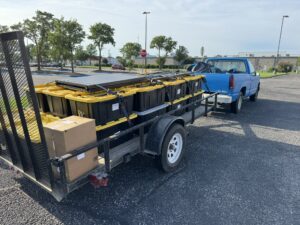
We started loading up our old truck and trailer the night before our outreach event with totes full of provisioning—just business as usual. Upon departure, I always take a picture, which I’ve posted here. We call the 36-year-old farm truck “Ole’ Blue” and have used her and the attached trailer since we started our outreach. She’s not much to look at and developed several issues over the years, such as no heat or windshield wipers and a leaky driver’s door that only opened from the outside. Despite that, I thought the advantage of using the old truck was that we weren’t pulling up in impoverished areas in something fancy. Ole’ Blue was more representative of us, something less than perfect, with the occasional part falling off. We don’t have anything fancy anyway.
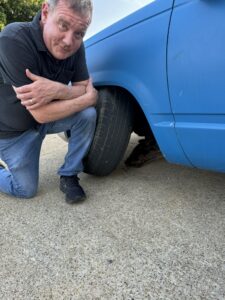 On my way home that evening, Ole’ Blue had a wheel fall off. By the grace of God, it happened while pulling into a parking lot rather than flying down the highway, so nobody was hurt. Once again, God had provided for us by putting the right people in our path at the right time. A couple of able-bodied men lifted the trailer off the hitch of Ole’ Blue onto the hitch of my father’s truck that had arrived to rescue our loaded trailer. Shortly after, Ole’ Blue was towed away to an uncertain fate.
On my way home that evening, Ole’ Blue had a wheel fall off. By the grace of God, it happened while pulling into a parking lot rather than flying down the highway, so nobody was hurt. Once again, God had provided for us by putting the right people in our path at the right time. A couple of able-bodied men lifted the trailer off the hitch of Ole’ Blue onto the hitch of my father’s truck that had arrived to rescue our loaded trailer. Shortly after, Ole’ Blue was towed away to an uncertain fate.
For weeks, a pastor friend told me it was time to get an enclosed food trailer or truck. Ironically, just earlier that week, a customer who had faithfully donated food for us to hand out for months had told me about a dream that she had about our transportation. In her dream, God had placed such a food truck in our path. I don’t see anyone gifting us anything like that for several reasons, but I’ve learned not to rely on my understanding. One is that we’re intentionally not a nonprofit (or a for-profit), which would discourage a gift since it couldn’t be used as a tax deduction. We don’t accept money, as some local nonprofits have developed self-serving strategies that I find disgusting. People operate under the disguise of helping others while using these resources to make themselves obscenely wealthy. Legal, just evil. And it’s happening in plain sight. Sometimes, I wish I didn’t know what I know and hadn’t seen what I’ve seen. What’s clear is that we want nothing to do with it.
As usual, we started at the Cadillac Motel that Saturday morning. What little clothes and shoes we had quickly disappeared, and once again, we had enough food for those who wanted it. We also handed out shampoo, soap, and feminine hygiene products. This time of year, we also have a cooler of water.
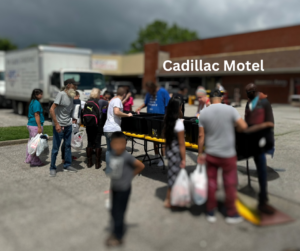
Our food bags contain one protein (such as a tuna pack or Vienna sausages), one package of peanut butter and crackers, a cereal bar, one pack of Ramen noodles, oatmeal, and a treat, usually a Little Debbie snack. We were blessed to start with about 500 food bags, which we had prepared the night before with the help of my friend James and his wife and daughter.
We arrive at our next stop, Tent City on (*retracted), just off Ewing Road. Usually, the residents are already there waiting for us. However, today was the exception. Usually, I would only approach their camps if I had one of them accompany me. In the same way, you wouldn’t walk into someone’s home unannounced, which would be a good way of getting an unwelcome greeting where I grew up. Nevertheless, my friend James and I headed down the tracks and approached the threshold to the main camp. After calling for some of their names, one of the long-term residents approached me and, upon recognizing me, dropped his cautiousness and greeted me, which was pleasing since it’s been our goal to gain some trust slowly.
Before long, many residents had arrived at the parking area, where we had the tables set up with the totes on them. We see many of the same people here, with the occasional new visitor who will be replaced by another the next time we arrive. You would think one would become desensitized over time to the outpouring of thanks and humbleness those experiencing true homelessness express, but for me, I’m just blown away every time. One of them asked if we could pray together before they departed. This doesn’t happen organically at any of our other stops.
In addition to our food bags, we usually hope to have enough provisions to create special totes for Tent City, as they have unique needs. Although the residents will tell you they have can openers, we give them canned food with a pull-top lid when possible. Fresh water is an issue, so we try to reserve cases of water and juice for them as well. We’ll often have wipes, toiletries, and feminine hygiene products, which are a real blessing for them.
On our past visits, the residents arrived with more transportation. For example, there might be two or three bicycles with some ability to transport goods, such as a wagon in tow. But today, everyone was on foot. A couple of men had requested to take totes that they had filled, which I am always happy to give, and it was apparent the struggle they were going to endure carrying them back to camp. They asked to borrow our hand truck, and we offered to follow them to help bring them down the steep river bank, which they thankfully accepted. This would be the first time since their camp had been forcibly relocated by our city government that I had been invited into the camp.
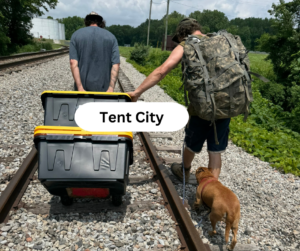
The road between the railroad tracks and the threshold to camp entry had turned into sludge during recent rains and then frequent use. But once the trail leading down the river bank had been reached, it became primarily covered in crushed brick, making it a more stable pathway. It made me remember that there had been a brickyard nearby. I thought about the massive effort it would’ve taken to transport all of that material by hand without some of the equipment you and I would’ve taken for granted, like a Bobcat or other front-end loader.
I could describe the camp in great detail, but that might be an invasion of their privacy. But I will say this: given the circumstances, it was well organized and clean. We were told about twelve people were living on that side of the camp. There is another camp on the other side of the railroad tracks that I’ve only seen from afar.
We traveled to the Colonel House Motel on Triplett Street to what has become our usual welcomed greeting. One of the residents who had discovered what we were doing called out loud for one of their friends, who unknowingly was sleeping across the street on the ground under the shade of a baby stroller. No, there was no child. The stroller was being used to transport belongings. The lady arose and walked across the street to where we had the tables set up. She was so grateful that there was food and water to drink, stating that she had not eaten in “quite a while.” We were told that management requested anyone not paying rent to leave the property the night before, and that’s how she wound up across the street.
We’ve always visited the same sites in that order. It just makes more sense to do it geographically like that. So, our last stop is Dixiana Court. In the past, we’ve had some heart-wrenching experiences at this stop, many of which I have written about. But you know, it can’t always be like that. Things may have gotten a little out of control, and I’m pretty sure it’s something we accidentally caused. In the past, since this was our last stop, we encouraged people to serve themselves, and that’s worked out well. But on this day, it just got out of hand, and select people took advantage of that, taking the lion’s share. For example, does one person need four or five bottles of laundry detergent, or could that have been spread out amongst other families?

It’s the nature of the beast. I’ve seen it happen numerous times at the Cadillac Hotel. During the coldest months, we haul around a trailer with totes of warm clothing like coats, gloves, and winter caps. There were times when the trailer would get overrun by people. Imagine a surge of thirty to forty people from shoulder to shoulder standing around a fourteen-foot trailer. Everyone is cold, or if they’re not yet, they know they will be. Given the size of the crowd, a sense of urgency boils up for everyone to grab the best they can for themselves and their loved ones before the person standing next to them does. The forty or so totes on the trailer that were once well sorted into categories and sizes now are frantically opened, and the contents are mixed up as if they were in a giant blender. What should I do, step in and say “stop”? The way I see it is that none of this belongs to me. God put these things in my path and entrusted me to be a good steward. But to be a good steward, I need to find a healthy balance to see that the goods are evenly spread about.
As much as you try to tame and organize your outreach, it will ultimately not yield to that. It’s messy and dysfunctional. As long as you go into it with that mindset, it helps. Also, the belief that everything we have doesn’t belong to us but to God has served me well over the years.
Food donations continue declining as I tap out my audience, who have graciously given for months. My friend James is a magician. More importantly, James is a disabled veteran. He has many skills working with those experiencing homelessness and great insight into programs and resources that we can’t bring to the table. James came up with the idea of offering up his family-friendly magic act and charging food for admission instead of money. I’ve never done anything like this, but it sounds like a good idea. We needed to find a venue that would be sympathetic to our cause. My first thought was, honestly, this. “That won’t be a problem. Any reputable business, especially a church with a gym or fellowship hall, will jump over this opportunity to help the less fortunate. Especially if there’s no expense for them.” So, I made that request public and expected an onslaught of offers. In retrospect, I see how ridiculous that sounded.
That’s not at all the case. We had a generous offer from one massive venue to use their space, but the timing was off. We felt our target audience would be more available on weekends, preferably on Saturdays. And, I don’t expect a business to hand over days that would otherwise be profitable for them. One church, which already collects food to feed those in need, offered their space, which meant a lot. We’ll figure it out. I’ve often said that He will provide if you do God’s will.
We ended the day with everybody who wanted food receiving food. That was our goal, and by the grace of God, we succeeded in achieving it despite some obstacles.
*Tent City’s location has been removed. The Safer Kentucky Act, which went into effect on July 15, 2024, makes sleeping or camping in public areas illegal, including on sidewalks, roadsides, under bridges, or in parks, parking lots, garages, or doorways. The law creates a new offense called “unlawful camping” that can result in arrest and fines. Assisting those individuals is considered to be aiding and abetting, which is a legal doctrine that refers to the act of helping or encouraging someone to commit a crime. The person who aids and abets is generally held to the same degree of criminal liability as the person who commits the crime. We ask that you please not attempt to locate or visit Tent City.
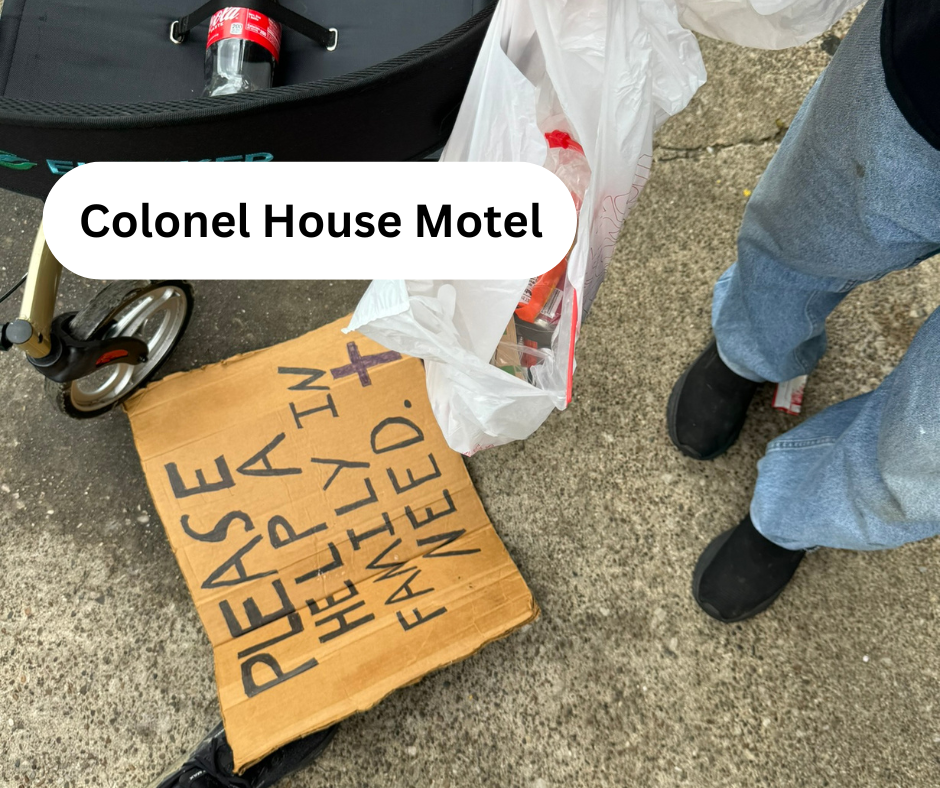

 On my way home that evening, Ole’ Blue had a wheel fall off. By the grace of God, it happened while pulling into a parking lot rather than flying down the highway, so nobody was hurt. Once again, God had provided for us by putting the right people in our path at the right time. A couple of able-bodied men lifted the trailer off the hitch of Ole’ Blue onto the hitch of my father’s truck that had arrived to rescue our loaded trailer. Shortly after, Ole’ Blue was towed away to an uncertain fate.
On my way home that evening, Ole’ Blue had a wheel fall off. By the grace of God, it happened while pulling into a parking lot rather than flying down the highway, so nobody was hurt. Once again, God had provided for us by putting the right people in our path at the right time. A couple of able-bodied men lifted the trailer off the hitch of Ole’ Blue onto the hitch of my father’s truck that had arrived to rescue our loaded trailer. Shortly after, Ole’ Blue was towed away to an uncertain fate.


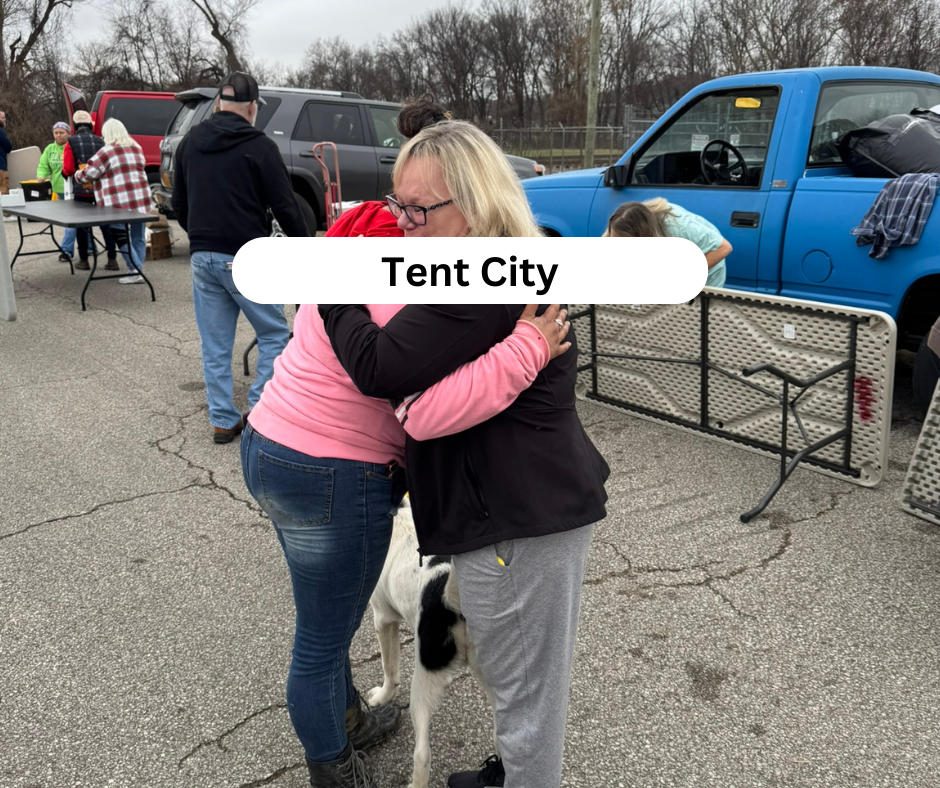
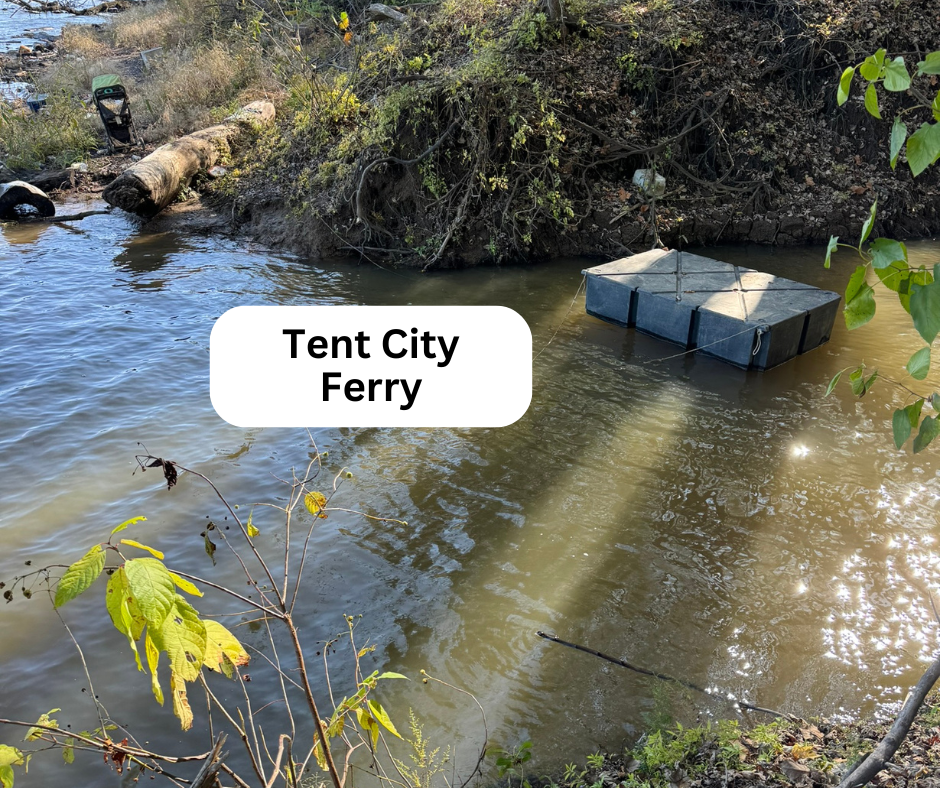
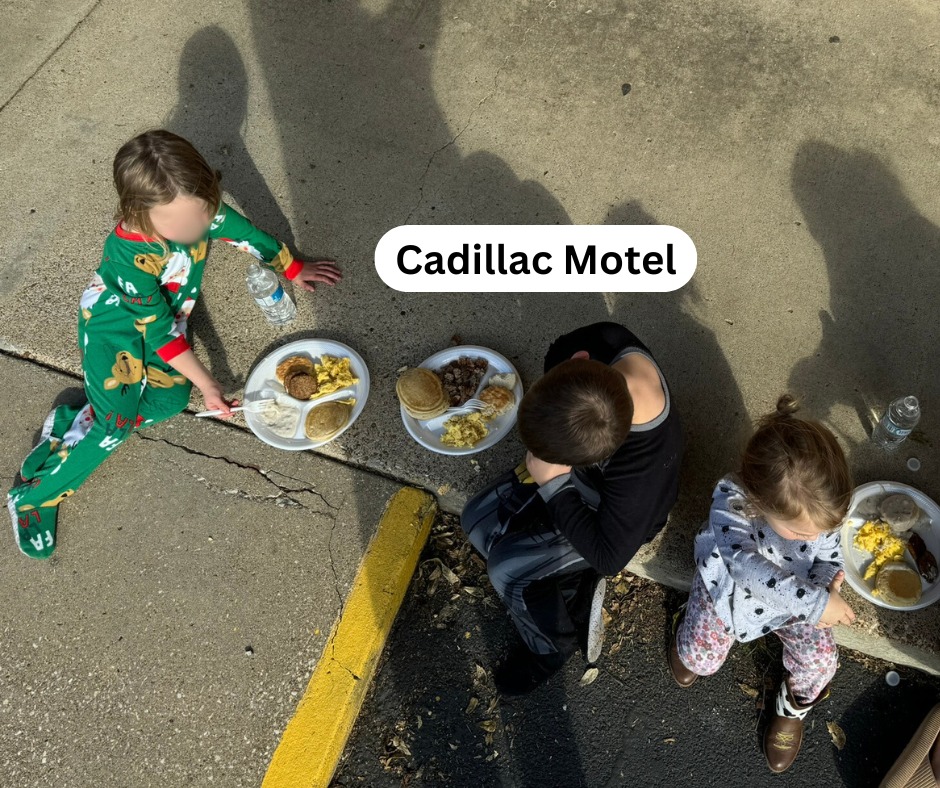
0 Comments